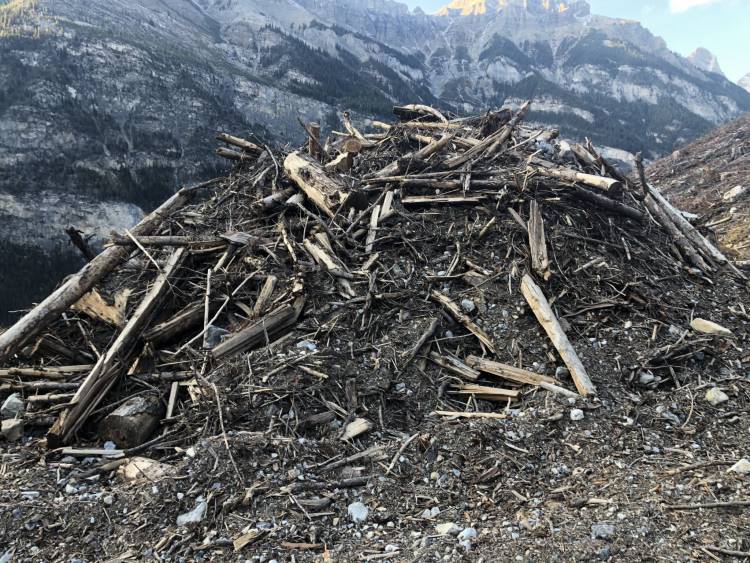It is the season when forest companies are burning wood wasted in forestry operations and, in many cases, this means smoke in our communities. Wood smoke is bad for our health and releases carbon into the atmosphere. There is growing criticism suggesting that wasted wood could be used for other products, not just burned.
In a time of climate crisis and mill closures, we need to focus on reducing carbon emissions and creating opportunities for the future of the forest industry.
Burning logging waste is a practice as old as logging itself. Burning can reduce the potential of outbreaks of forest pests, like pine or fir beetle, and as a tool to reduce forest fire hazards. The industry has always done it this way so systems are not set up for anything different. Although there are significant costs to making change, the health of our communities and climate require it.
There are many different approaches used across the world to tackle this issue. District heating systems are used to burn wasted wood and provide heat for residents. Power plants operate to convert logging waste into electricity and chipped waste is used to make compost, fertilizers and bio-fuels. We need to put systems in place to make use of the by-products of logging—using these by-products is the future of forestry.
Infrastructure is needed to make a shift in how wasted wood is used and government policy around waste needs to change. The cost to industry for leaving waste needs to go up and incentives need to be in place for industry around the innovative use of logging by-products. Investments from governments and forest companies are needed to make this possible.
With constant boom and bust cycles in the forest industry, we need to address the root of the problem and make a more resilient and sustainable future for forest workers and our communities.
Creating a future where logging waste is not burned in piles will reduce health impacts to individuals, reduce carbon emissions and create new opportunities for our communities.








